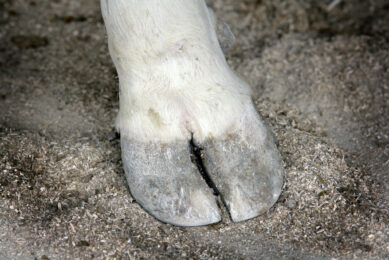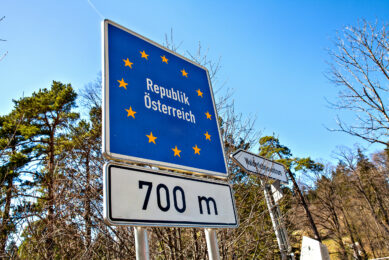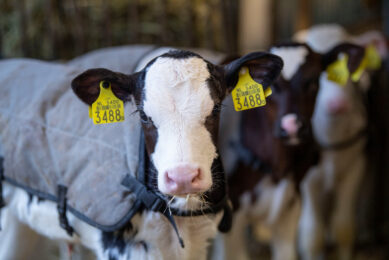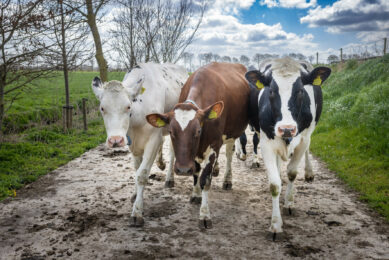FMD Germany: Dairy industry holds its breath
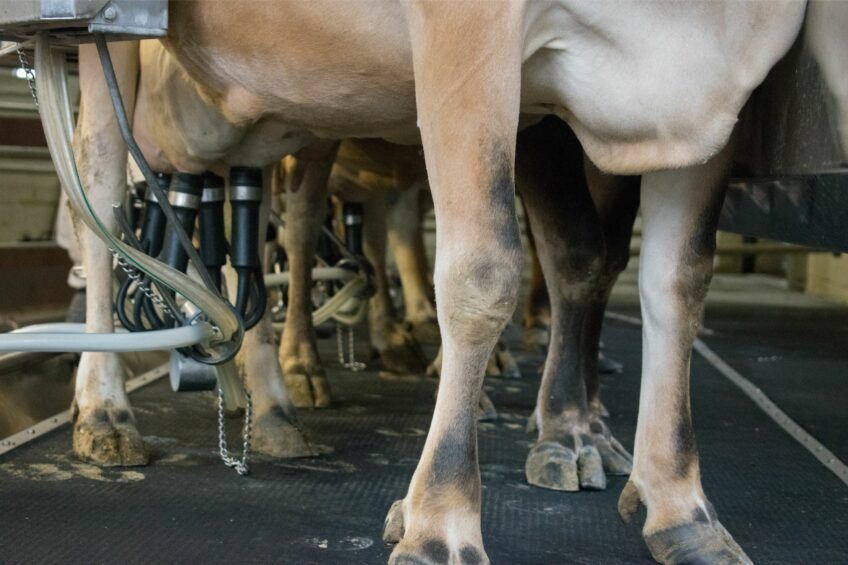
In Germany as well as in neighbouring the Netherlands, the dairy, beef and pig industries are all holding their breath as for the 1st time in 37 years a case of Foot-and-Mouth Disease (FMD) emerged last Friday. The outbreak had led to a lot of immediate consequences.
All wheels were set in motion on Friday 10 January. On a farm in Brandenburg state in the east of Germany, 3 water buffaloes died of FMD, serotype O. As a consequence, 11 more water buffaloes on the farm had to be culled. In addition, Germany has lost its status of ‘free of FMD without vaccination’.
As the news is still fresh, the discovery has various far-reaching consequences – for the dairy, beef and pork industries, FMD can infect cattle as well as in pigs. This article is an overview of consequences thus far.
Transport ban for livestock in Germany
In Germany, a restricted area and a monitoring area were put in place as well as a transport ban for cattle, pigs, sheep, goats and camelids throughout Brandenburg state for at least 72 hours. That was later extended to include Berlin.
All susceptible animals within a 1km radius around the infected water buffalo farm were culled on Saturday, which included a farm with 170 pigs in Barnim district. Animals at a 2nd location of the infected farm, 18 km away in the Oder-Spree district, also got culled as a precaution. That included 55 goats, sheep and 3 cattle. Those animals did not show any symptoms. A suspected animal in the Berlin region tested negative.
It is, however, possible that the virus may have already spread in the district of Barnim, partly because the animals might have been infected with FMD for a long time. Susceptible animals within a radius of 3 km around the infection are therefore being sampled for the virus.
According to Germany’s federal ministry of agriculture (BMEL), the principle of regionalisation applies outside the restricted zones in domestic German and intra-EU trade, i.e., shipments are still possible.
Origin of FMD outbreak unclear
Germany’s leading agricultural title Top Agrar reported on a press conference on Saturday in which Dr Ralph Bötticher from the veterinary office of the Märkisch-Oderland district stated that the search for the possible cause of the outbreak was ongoing. The producer in whose herd of buffalo FMD was detected is active in the organic sector. He does not buy any feed. He feeds his own hay and looks after a landscape conservation area.
The serotype O of the virus is a known serotype – it also exists in the Middle East and Asia, and it is also available in Germany’s antigen bank. That means that vaccine production would theoretically be possible within days.
No cloven-hoofed animals at Green Week
A huge number of international visitors are expected at the agricultural fair Grüne Woche (Green Week), which is taking place in Berlin this week. As a consequence of the FMD outbreak, cloven-hoofed animals are not permitted to be present at the event. Lars Jaeger, director of Green Week, told local news outlet RBB: “There will not be cattle, sheep, goats and alpacas to see as planned, but there will be many other farm and pet animals.”
South Korea bans import of German pork
South Korea has banned the import of pork from Germany with immediate effect until further notice. The South Korean ministry of agriculture added that about 360 tonnes of German pork, imported since 27 December, will be quarantined and tested for possible FMD contamination. South Korea also wants to closely monitor developments in neighbouring regions and countries such as Poland.
Emergency measures in the Netherlands
In neighbouring the Netherlands, a total of 125 farms have been told to suspend any operations. These are farms that imported calves from Brandenburg state within the last few weeks. Femke Wiersma, the country’s agriculture minister, decided to do that in order to eliminate any risk of the spread of FMD in the Netherlands. All in all, since 1 December, approximately 3,600 calves have been imported from Brandenburg to the Netherlands.
In addition, stakeholders within the Dutch business, united in the SBK, also decided to implement a standstill until Sunday 19 January. That means that no calves can be transported within the Netherlands, irrespective of their origin, with the exception of transfer to a slaughterhouse. The SBK decided to ban imports of veal calves from Brandenburg state until further notice.
Join 13,000+ subscribers
Subscribe to our newsletter to stay updated about all the need-to-know content in the dairy sector, two times a week.



